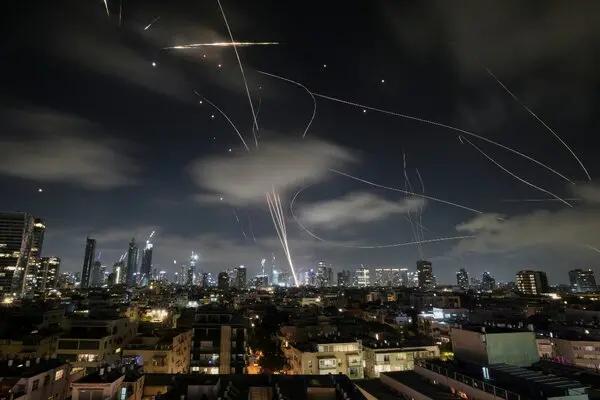Written By Lexx Thornton
President Trump has bought more time to make a decision on U.S. military intervention in Iran, capping off a whirlwind week that saw his administration approach the brink of direct action before hitting pause.
“Based on the fact that there’s a substantial chance of negotiation that may or may not take place with Iran in the near future, I will make my decision whether or not to go in the next two weeks,” Trump said in a statement Thursday read aloud by White House press secretary Karoline Leavitt.
Trump’s decision puts on hold any immediate move by the Pentagon to directly engage in strikes or other actions targeting Iran and its nuclear program, something the president has openly mulled this week amid escalating tensions between Israel and its biggest regional rival.
The updated timetable would put Trump’s self-imposed deadline for potential strikes on the eve of Independence Day weekend.
In the week since Israel launched a barrage of missiles into Iran — targeting Tehran’s nuclear infrastructure and high-ranking generals — the world has been holding its breath as Trump weighs whether to directly involve the U.S. in the conflict.
Iran’s main nuclear enrichment facility, Fordow, is located in a mountain bunker only U.S. missiles could penetrate. Trump has been briefed on both the risks and the benefits of bombing Fordow, and he believes that disabling it is necessary because of the risk of weapons being produced in a relatively short period of time.
Leavitt sidestepped a question Thursday over potential U.S. involvement in a regime change in Iran. When pressed on how close the president thinks Iran is to completing the production of a nuclear weapon, Leavitt said that at this point, it’s up to the Iranian supreme leader, Ayatollah Ali Khamenei, to decide to move ahead with the final stages.
“Iran has all that it needs to achieve a nuclear weapon. All they need is a decision from the supreme leader to do that,” she said. “And it would take a couple of weeks to complete production of that weapon.”
Some military experts estimate Israel and Iran have sufficient remaining munitions to continue pounding each other for a few more weeks. Iran is weaker on the missile ledger.
Israeli Prime Minister Benjamin Netanyahu, who has repeatedly spoken with Trump since Israel began attacking Iran, pushed Trump to support Israeli strikes over the course of a series of meetings, Time magazine reports.
The president initially said the U.S. would not involve itself in the conflict while reiterating he could not allow Iran to develop a nuclear weapon. Trump, who in his first term withdrew from the Obama-era nuclear agreement with Iran, had been pressing for talks to hammer out a new agreement in his second term.
Those negotiations have been on ice for weeks, but European foreign ministers are slated to meet with Iranian officials in Switzerland today to press them to de-escalate and offer a rollback of Iran’s nuclear activities. White House officials are watching those talks with interest as Trump suggests that he would wait to let discussions unfold. But Iran’s foreign minister said his country is not seeking negotiations with anyone as long as Israel continues its strikes.
Next week’s NATO summit at The Hague will offer another opportunity to glean what the president is thinking about any negotiations with Tehran.

